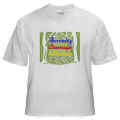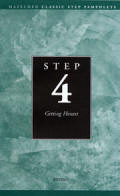

MRP Site Navigation
MRP
Home Page
MN
12 Step Groups
MN Treatment Centers
National
AA Intergroups
National NA Intergroups
National Al-Anon Intergroups
Other Recovery Groups
Online Meetings
AA History
Recovery Events
Links
Alcoholism
Links
Codependency
Links
Commercial
Sites
Drug
Addiction Links
Eating
Disorder Links
Gambling
Addiction Links
Gay
& Lesbian Links
Mental
& Emotional Health
Religion
& Spiritual Links
Sexual
Addiction Links
Women's
Issues
Bookstore
Reading
Room
AA Literature
Recovery Articles
Personal
Stories
People In Recovery
Graphics
Supporting the Minnesota Recovery Page
Contact Us

The Dance of Anger: A Woman's Guide to Changing the Patterns of Intimate Relationships
|
|

Beyond Anger: A Guide for Men : How to Free Yourself from the Grip of Anger and Get More Out of Life

The Anger Trap : Free Yourself from the Frustrations that Sabotage Your Life

When Anger Hurts: Quieting the Storm Within
© 1996 - 2009
Minnesota Recovery Page
Checklist for Hidden Anger
If we have any natural fault, it is hiding
our own anger from ourselves. Here is a checklist to help you determine if
you are hiding your anger from yourself. Any of these is usually a sign of
hidden unexpressed anger.
This is not about rage. Rage is anger out of control and taking over your whole being. This is about the feelings we call, irritation, annoyance, getting mad, etc. All these negative feelings share one thing in common: they are considered undesirable at best, sinful or destructive at worst. We are taught to avoid then-to avoid having them if possible it isn't) but certainly to avoid expressing then. Unfortunately, many people go overboard in controlling negative feelings; they control not only their expression, but their awareness of them, too. Because you are unaware of being angry does not mean that you are not angry. It is the anger you are unaware of which can do most damage to you and to your relationships with other people, since it does get expressed, but in inappropriate ways, Freud once likened anger to the smoke in an old-fashioned wood-burning stove. The normal avenue for discharge of the smoke if up the chimney; if the normal avenue is blocked the smoke will leak out of the stove in unintended ways-around the door, through the grates, etc. checking everyone in the room. If all avenues of escape are blocked, the fire goes out and the stove ceases to function. Likewise, the normal (human) expression of anger is gross physical movement and/or loud vocalization; watch a red-faced hungry infant sometime. By age five or so we are taught that such expressions are unacceptable to others and lead to undesirable consequences such as being beaten or having affection withheld. We learn to "be nice", which means (among other things) hiding bad feelings. By adulthood even verbal expression is curtailed, since a civilized person is expected to be "civil". Thus, expression is stifled and to protect ourselves from the unbearable burden of continually unexpressed "bad" feelings, we go to the next step and convince ourselves that we are not angry, even when we are. Such self-deception is seldom completely successful, however, and the blocked anger "leaks out" in inappropriate ways, some of which are previously listed. The items in the list are all danger signals that negative feelings are being bottled up inside. It is true that each of them can have causes other than anger (procrastination, for example, can be due to an unreasonable fear of failure), but the presence of any of them is reason enough for you to look within yourself for buried resentments. If you are human, you will find some. If you are fortunate, you will find few, since you will have learned effective ways of discharging them. If you are like most of us, you will need to unlearn some old habits before you can learn new ways of handling "bad" feelings, ways which are constructive rather than destructive. Getting rid of a lifetime accumulation of buried resentments is a major task which is one of the goals of psychotherapy. Whether such a process is necessary for you should be decided in consultation with a qualified professional person. Our immediate concern in the paper is to provide you with some techniques which will help you stop adding to the pile what ever its existing depth. The process of dealing with negative feelings can be divided into three parts for purposes of discussion, although the living of it is all of a piece. The parts are:
Everybody has his own bodily signals indicating current on-the-spot anger. Look for yours: Friends and relatives might be helpful, since they may be aware of your irritation before you are, and may be able to tell you how they can tell, when you are upset. Some common signals are: Clamming up; Blushing; Shortening of breath; Drumming with fingers; foot tapping, shaking or twisting; laughing when nothing amusing is happening patting or stroking the back of the head; Clenching jaws or fists; tucking a thumb inside a fist; yawning or getting drowsy; Suddenly refusing eye contact with another person; Fidgeting; Apologizing when none is asked for; A pain in the neck, Gut or back; Headaches; A rise in voice pitch. The list is interminable; try to find out what your signals are. If you find yourself depressed or blue and don't know why, Think back over the past twenty-four hours and try to figure out who did something to anger you. (Depression is usually the result of repressed anger.) Forget you are a nice guy and imagine yourself to be the toughest, most unreasonable, childish person on the earth; review your day and look for an incident wherein this imaginary person might have gotten angry. When you find the incident, ask yourself why you didn't get angry. Chances are you did and didn't know it. Remember what you actually did and said in that situation; try to "relieve it" you may learn some of your own internal anger signals.
The anger is yours. The other person may have said or done something that punched your anger button, but the anger is yours, and-so are the feelings it triggers. You cannot make someone else responsible for your own feelings. Blaming does not help. nothing the other person does will help, unless it is in response to something you do. Accepting anger as your own is easier if you discard the idea that feelings need to be justified. They don't, and frequently cannot be "should" and "feel" are two words which do not belong together. It is senseless to say that someone "should feel" some way. Feelings are just there in the same way your skin, muscles, and vital organs are just there. In fact, it is downright harmful to worry about what you feelings "should be" Such worry will get in the way of finding out what your feelings are is the best start to deciding on the best thing to do.
First, foremost, and always. Don't hide it. You'll probably not be successful, anyway, anger demands expression. If you have recognized it and owned it, then you will have a choice of when, where and how you may express it. Society (and your own safety) forbids violence. Friendship or other interpersonal relationships (such as husband/wife, employer/employee) make explosive verbal expression ultimately self- defeating. Just saying," That makes me angry", or "I do not like it when". may not be as satisfying as bashing someone , But it is far more satisfying that saying and doing nothing. There are in reality a few situations in which it is to your best interest to delay expression, but none in which you can afford to delay recognition or owning. |
The Minnesota Recovery Page is a directory of resources for recovery from chemical addiction in Minnesota. The Minnesota Recovery Page is NOT an organization, nor is the Minnesota Recovery Page endorsed by or affiliated with Alcoholics Anonymous, Al-Anon, or any other group. In an effort to be self-supporting, the Minnesota Recovery Page includes a limited amount of advertising. The MRP makes a small amount of money when you click on the links below and purchase an item.
© 1996-2009 Minnesota Recovery Page - All Rights Reserved
A word about the advertising:
In an effort to be self-supporting, the Minnesota Recovery Page includes a limited amount of advertising. The MRP makes a small amount of money when you click on the links below and purchase an item.
Click to see many

Bill W. & Dr. Bob
5 Year Medallion
more medallions
Recovery Ring in
Sterling Silver


Stepping Stones To Recovery For Men

Alcoholics Anonymous -
Big Book (Hardcover)

![]()
Serenity Prayer and Waterfall
Art Print
Donnelly, Terry
Buy at AllPosters.com











